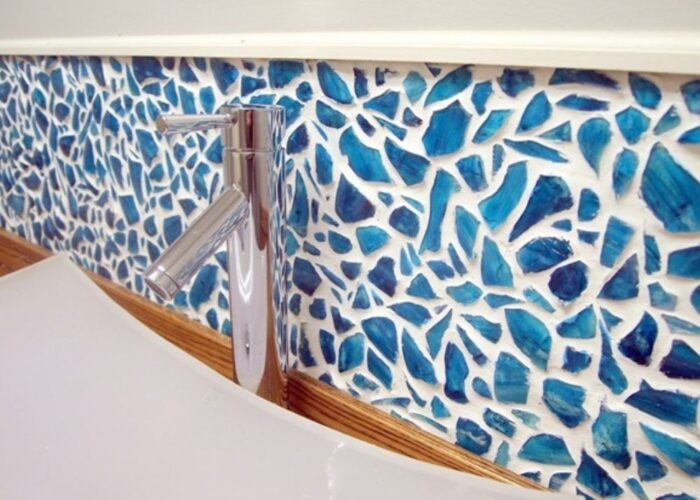How to install mosaic tile backsplash? Installing a mosaic tile backsplash can be a rewarding DIY project that adds a stylish touch to your kitchen or bathroom. Here’s a step-by-step guide to help you through the process:

Q: Can I install a mosaic tile backsplash over existing tiles? A: Yes, but the existing tiles must be clean, dry, and free from any grease or soap scum. Roughen the surface with sandpaper for better adhesion.
Q: What is the best grout color to use? A: The grout color depends on your aesthetic preference. Neutral colors like white, gray, or beige are versatile, while contrasting colors can make the mosaic pattern stand out more.
Tools and Materials Needed
- Mosaic tiles
- Tile adhesive (thin-set mortar or mastic)
- Notched trowel
- Tile spacers
- Grout
- Grout float
- Sponge
- Bucket of water
- Measuring tape
- Level
- Utility knife or tile cutter
- Painter's tape
- Drop cloth
- Sealant (if needed)
Steps to Install a Mosaic Tile Backsplash
- Prepare the Surface
- Ensure the wall is clean, dry, and smooth. Remove any grease, dust, or old wallpaper.
- If the wall is painted, rough it up slightly with sandpaper to help the adhesive bond better.
- Plan the Layout
- Measure the area and plan the layout of your tiles. Dry-fit the tiles on the countertop to see how they will look.
- Mark the center point of the wall and use a level to draw a vertical line. This will help you keep the tiles straight.
- Apply the Adhesive
- Spread the tile adhesive on the wall using a notched trowel. Work in small sections to prevent the adhesive from drying out.
- Hold the trowel at a 45-degree angle to create ridges in the adhesive, which will help the tiles stick better.
- Place the Tiles
- Press the mosaic tile sheets into the adhesive, starting from the bottom center and working your way outwards.
- Use tile spacers to ensure even spacing between sheets.
- If you need to cut tiles, use a utility knife or tile cutter. For more complex cuts, a tile nipper can be used.
- Adjust and Level the Tiles
- Use a level to make sure the tiles are even. Adjust as needed by pressing on the tiles or adding more adhesive.
- Allow the adhesive to dry according to the manufacturer’s instructions (usually 24 hours).
- Grout the Tiles
- Once the adhesive is dry, remove the tile spacers and mix the grout according to the package instructions.
- Use a grout float to spread the grout over the tiles, pressing it into the spaces between them.
- Hold the float at a 45-degree angle and move it diagonally across the tiles to avoid pulling grout out of the spaces.
- Clean the Tiles
- After applying the grout, wait about 15-30 minutes and then use a damp sponge to wipe off excess grout from the tile surfaces.
- Rinse the sponge frequently and be gentle to avoid removing grout from the joints.
- Allow the grout to dry for a few hours and then polish the tiles with a dry cloth to remove any grout haze.
- Seal the Grout (Optional)
- If recommended by the grout manufacturer, apply a grout sealer to protect against stains and moisture.

Tips for Success
- Choose the Right Adhesive: For kitchens and bathrooms, use a waterproof adhesive.
- Consistency Matters: Make sure the adhesive and grout have a smooth, peanut butter-like consistency.
- Ventilation: Ensure good ventilation during the installation and drying process to avoid inhaling fumes.
FAQs
Q: How long does it take to install a mosaic tile backsplash? A: The project typically takes 2-3 days, including drying time for the adhesive and grout.Q: Can I install a mosaic tile backsplash over existing tiles? A: Yes, but the existing tiles must be clean, dry, and free from any grease or soap scum. Roughen the surface with sandpaper for better adhesion.
Q: What is the best grout color to use? A: The grout color depends on your aesthetic preference. Neutral colors like white, gray, or beige are versatile, while contrasting colors can make the mosaic pattern stand out more.

